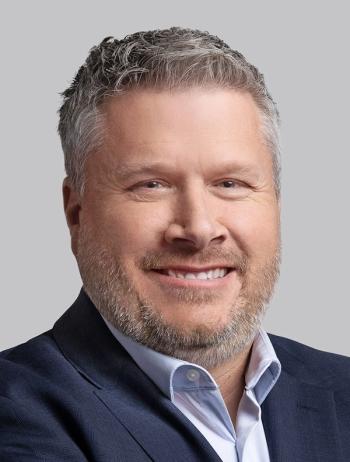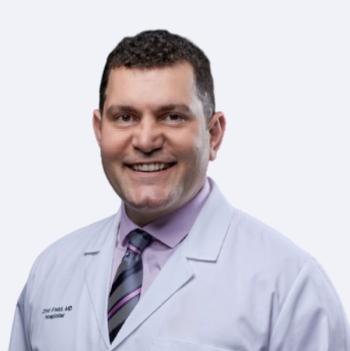
Focusing on the health needs of women
Lisa Larkin, MD, has started two practices from scratch, directed a university-based women's health center, helped to start a regional consortium for sexual medicine, and survived breast cancer.
Lisa Larkin, MD, could have pursued a conventional medical career, such as practicing general internal medicine or teaching. But Larkin has followed a different path, focusing instead on women’s health. Along the way she has started two practices from scratch, directed a university-based women’s health center, helped to start a regional consortium for sexual medicine, and survived breast cancer.
Larkin’s interest in women’s health stems from her first post-residency job, teaching primary care medicine at the University of Cincinnati College of Medicine. “It became clear to me that there was a
Larkin responded by opening a solo practice in 2002, catering to the health needs of women. The practice expanded rapidly, so that within a few years she had hired four more primary care doctors and two gynecologists-all women-and developed referral relationships with a wide variety of specialists practicing in her building or nearby.
“In effect I developed a multi-specialty practice for women, and patients really loved the concept,” she says. Larkin decided she wanted to provide additional services and reach more patients, but knew doing so would require backing from an institution. So she negotiated an agreement with the University of Cincinnati Health System to build and direct its first women’s center, a $2 million facility that opened in 2013.
However, Larkin’s hope for the center were thwarted by its lack of a defined place in the health system’s institutional framework, and not having a source of funds to draw on for its operating budget.
PODCAST:
“We were a corporate orphan with no money and no leadership behind me to say ‘this is a priority and we, as a system, are going to figure out how to make it a success,’” Larkin says. Reluctantly, she resigned from the center at the end of 2015.
It was during her time at the women’s center that Larkin was diagnosed with breast cancer, requiring her to undergo a bilateral mastectomy, followed by six months of chemotherapy. While frightening and painful, the experience did help deepen her understanding of the challenges many of her patients faced. “I’m a chemotherapy-induced menopause, sexual dysfunctional breast cancer survivor, so it’s like I’m living my own patient population,” she laughs.
After recovering, Larkin returned to private practice in the fall of 2016. She used a bank loan to purchase a modest, red-brick building in the Cincinnati suburb of Mariemont, where she now employs four other providers, including an OB/GYN and a certified nutritionist, all of whom previously worked with her at the women’s center.
Her practice uses a direct payment model, which Larkin and her colleagues find more to their liking than getting paid by insurers. “We’re seeing 16 patients a day instead of 26 [as they were at the women’s center],” she says. “I’m able to return phone calls. Patients can get in when they’re sick. It’s a much cleaner, more efficient way of providing care.”
CHANGEMAKERS IN MEDICINE:
Being back in private practice also allows Larkin to use a tool she has developed for assessing a woman’s risk of developing breast cancer--an algorithm that includes factors such as weight, age, reproductive history and breast density to enable Larkin to calculate a patient’s five- and 10-year and lifetime odds of contracting the disease. Larkin uses the results to discuss ways patients can lower that risk and to make individualized screening recommendations, including how frequently they should get a mammogram.
In addition to her practice, Larkin has been helping to launch the Cincinnati Sexual Health Consortium, a nonprofit organization addressing the sexual health needs of area women. The Consortium is developing a website to enable physicians, who are often uncomfortable discussing patients’ sexual problems, to find and refer patients to sex therapists and psychologists specializing in couples counseling.
Although proud of what she has accomplished, Larkin remains frustrated that women’s general and sexual health needs still aren’t being adequately met. “In visit after visit my patients tell me no one has ever asked such questions or discussed these issues with them,” she says. “The only way to change this is to have primary care doctors interested and trained in delivering the care that in most cases is not being provided.”
Asked what she would advise women entering medicine today, Larkin says they should think of their careers in terms of “the long game.”
“If you had told me when I graduated medical school that I would be running my own practice I would have laughed,” she says. “You have to know that there will be twists and turns, and believe great opportunities will come along that you never expected, and be ready to take advantage of them.”
Newsletter
Stay informed and empowered with Medical Economics enewsletter, delivering expert insights, financial strategies, practice management tips and technology trends — tailored for today’s physicians.






